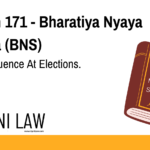In a significant ruling, the Orissa High Court emphasized the procedural requirements that must be followed before a Magistrate orders an investigation against public servants under the Bharatiya Nagarik Suraksha Sanhita (BNSS). The Court ruled that an investigation can only be ordered if specific procedures under Section 175(4) are followed, which include receiving a report from the officer superior to the accused and considering the public servant’s assertions regarding the alleged incident.
Case Background
The case arose from allegations by a petitioner and his wife, who claimed to be victims of fraud and were pressured by police officials to withdraw their complaints. The petitioners alleged that high-ranking officers, including the then Deputy Commissioner of Police (DCP), were involved in pressuring them through various means, including threats and unlawful detention.
Despite approaching various police officials, the petitioners’ complaints went unaddressed, leading them to file e-FIRs. They later approached the JMFC-II, Bhubaneswar, who ordered an investigation, but no FIR was registered. Consequently, the petitioners approached the High Court seeking an investigation by the Crime Branch.
Court’s Observations and Findings
The Court highlighted critical procedural flaws in the lower court’s handling of the case. It noted that the Magistrate had failed to comply with Section 175(3) of the BNSS before ordering an investigation. Specifically, the Magistrate did not conduct the necessary inquiry or consider submissions from the police officer before issuing an order for an FIR.
Justice Gourishankar Satapathy referenced a recent Supreme Court ruling, Om Prakash Ambadkar v. State of Maharashtra & Ors., which set out the procedural safeguards under Section 175. These include the requirement for an affidavit supporting the application for investigation, an inquiry by the Magistrate, and consideration of the police officer’s submissions regarding the refusal to register the FIR.
Importance of Compliance with BNSS Procedures
The Court stressed that Section 175(4) of the BNSS requires a Magistrate. They are to obtain a report from an officer superior to the accused public servant. They should consider the public servant’s explanation of the incident. The Court found that these steps were not followed, leading to procedural errors that could potentially result in jurisdictional issues.
The ruling serves as a reminder of the importance of adhering to the procedural safeguards. It is meant to protect public servants from baseless accusations. Thus, while also ensuring accountability in cases involving serious allegations.
Conclusion
The Orissa High Court set aside the Magistrate’s order for an investigation and remitted the matter for reconsideration. This ensures that future proceedings follow the strict requirements laid out under the BNSS. A decision alike reinforces the need for proper legal procedures in cases involving public servants. Thus, ensuring that investigations are ordered only after thorough consideration and adherence to statutory guidelines.








